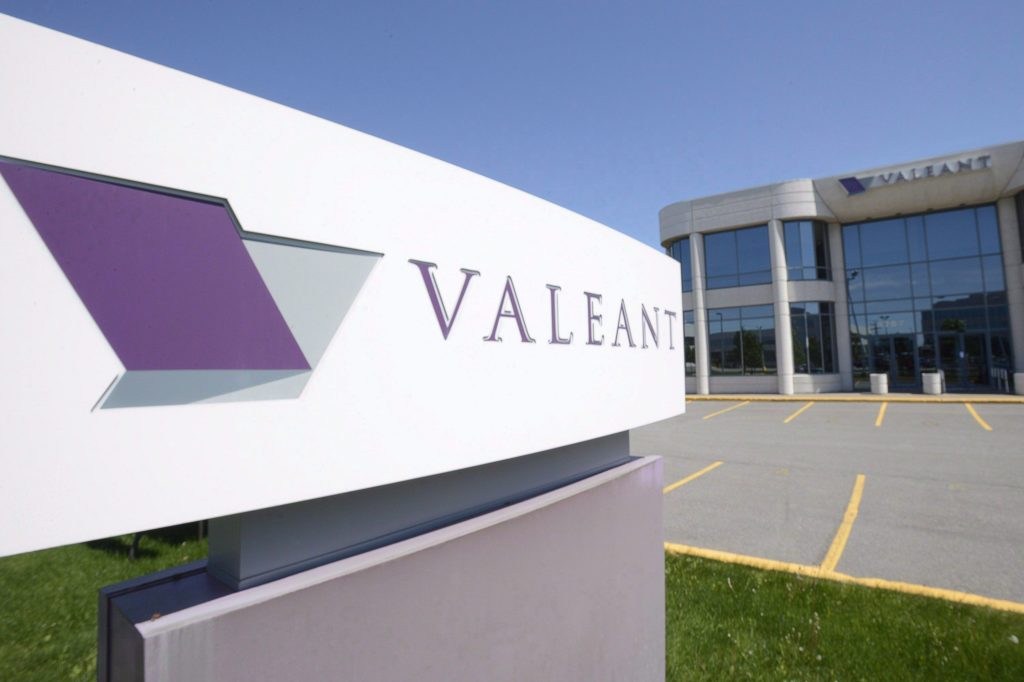Valeant Pharmaceuticals (Now Bausch Health) and Three Former Executives Settle SEC Cases

Bausch Health agreed to pay the SEC $45 million to settle Valeant Pharmaceuticals (former name) accounting fraud schemes.
Three former executives, former CEO Michael Pearson, CFO Howard Schiller and Controller Tanya Carro also settled with SEC. Pearson agreed to pay a civil penalty of $250,000 and repaid Bausch $450,000 in compensation; Schiller agreed to pay a civil penalty of $100,000 and repaid Bausch $110,000 in compensation; and Carro agreed to pay a civil penalty of $75,000 and barred from working with public companies.
Valeant is a publicly-traded global pharmaceutical and medical device company that sells a broad range of branded and generic pharmaceuticals, over-the-counter products and medical devices. During the period of 2014 and 2015, Valeant grew through an aggressive acquisition strategy.
Valeant supplemented its GAAP disclosures with non-GAAP financial measures, including same store organic frowth which represented growth rates for businesses owned for over one year or more, and Cash Earning Per Share, which excluded costs associated with business development. When announcing certain GAAP and non-GAAP financial measures, Valeant failed to disclose material information about these measures.

Valeant’s troubling activities centered around its relationship with Philidor RX Services. In 2013, Valeant provided an advance of $2 million and entered into agreements with Philidor to dispense Valeant’s products. In subsequent years, Valeant increased its sales to Philidor. By Q3 2015, Valeant announced double-digit U.S. organic growth for the fifth consecutive quarter. US organic growth was cited as 22 percent. Philidor’s sales accounted for over 14 percent of Valeant’s US growth. Excluding those sales to Philidor reduced Valeant’s organic growth to 7 percent for the quarter. In its Q3 2015 earnings call, Valeant disclosed for the first time that it had, since December 2014, an option to purchase Philidor.
Valeant’s relationship with Philidor was the subject of media and analyst reporting. In its 2015 annual report, Valeant restated its financial statements to reduce sales revenue from Philidor by approximately $58 million due to premature recognition of revenue. Valeant acknowledged material weaknesses in its internal controls over financial reporting.

In Q2 2015, Valeant recorded revenue from price appreciation credits (“PACs”) pursuant to its Distribution Services Agreements (“DSAs”) with its major wholesalers, which impacted certain GAAP and non-GAPP measures. The DSAs provided for Valeant to offset distribution fees owed to wholesalers with credits for price increases on Valeant products held in wholesalers’ inventory. As a result, a price increase generated additional net revenue to Valeant not from increased product sales but from previously sold products still held by wholesalers.
On June 18, 2015, Valeant recorded $110 million in net PAC revenue through a 500 percent price increase on Glumetza. Rather than attributing the increased revenues to Glumetza, Valeant allocated the entire $110 million as net revenue to over 100 other products, and resulted in misleading disclosures in Valeant’s Q2 2015 earnings presentation. Q2 and Q3 2015 reports and its year end 2015 report.
Valeant cooperated with the SEC and undertook remedial measures, including: (a) replacing its executive management team; (b) implementing substantial revisions to its accounting policies and internal controls; and (c) providing to employees accounting training.















